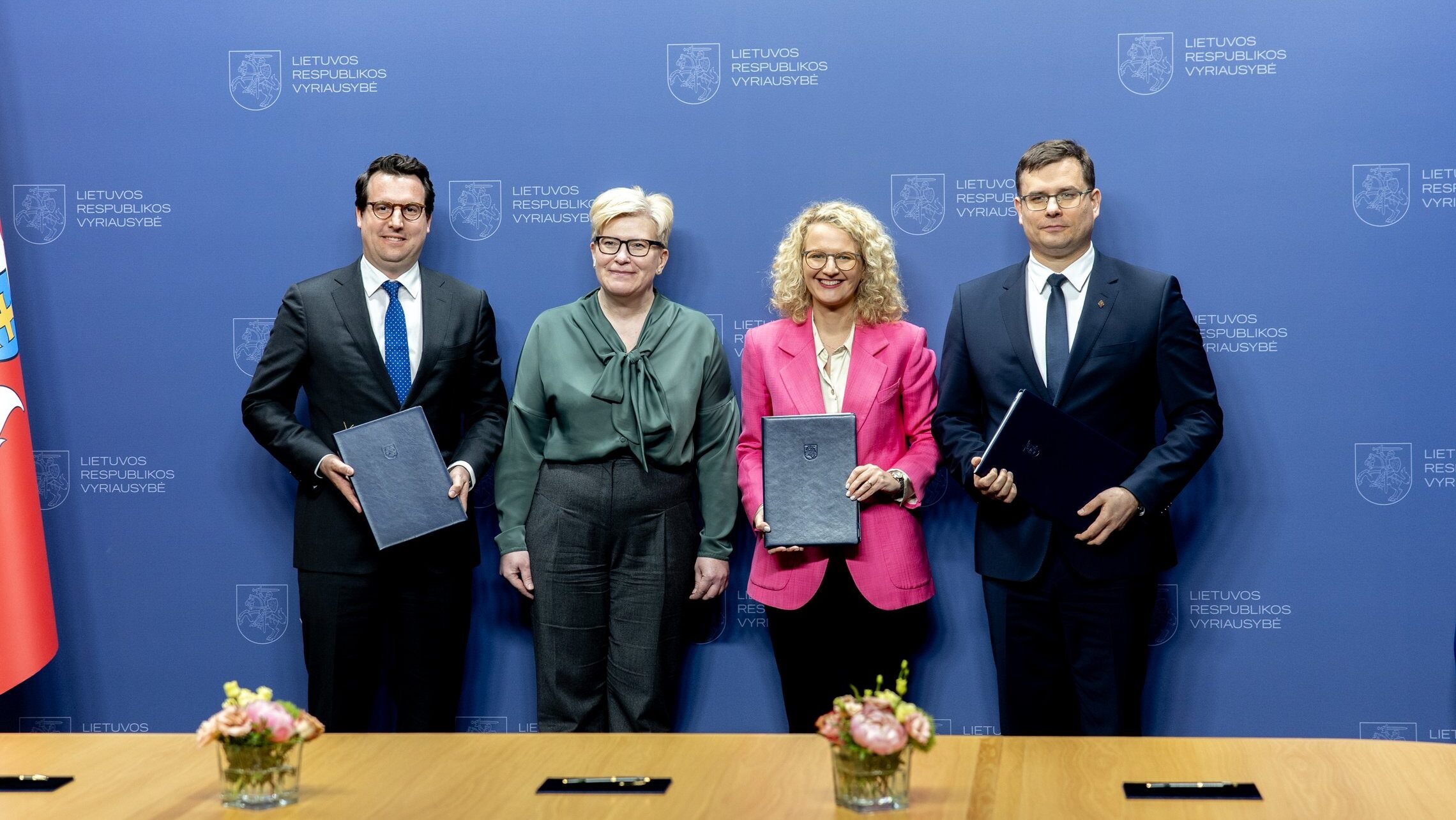Lithuania, Rheinmetall sign agreement for 155mm ammunition plant
Breaking Defence carries an article about the agreement on 155mm ammunition plant signed by Lithuania and Rheinmetall, Caliber.Az reprints the article.
Lithuania and German manufacturer Rheinmetall signed a memorandum of intent today to establish a 155mm ammunition factory in the Baltic state, aimed better arming Ukraine in its fight against Russia and potentially marking the first expansion for defense industrial facilities in the Baltic nation under proposed rules.
The agreement covers “mutual obligations and intentions regarding the earliest possible start of construction” for the proposed facility, according to a translated press release from Lithuania’s Ministry of Economy and Innovation.
It did not say where exactly the facility will be built or how many 155mm ammo shells the plant will produce. Amid a Ukrainian ammunition shortage and an inferior rate of fire compared to Russian forces, amounting to 2,000 rounds a day, Lithuania’s new facility could offer Kyiv some relief.
Lithuania’s Prime Minister Ingrida Šimonytė said the new 155mm production factory “will be important for Lithuania, Ukraine and our entire region.”
Predicting that Russia will “remain the biggest threat to Europe for a long time to come,” he stressed the need for Lithuania, which borders the Russian enclave that is the Kaliningrad Oblast and lies just over 100 miles west of the Russian mainland, to “invest as quickly as possible not only in adequate military preparedness and societal resilience, but also in the defense industry.”

The commitment to build the 155mm ammunition facility in partnership with Rheinmetall, is a “practical example” of how Lithuania is currently delivering those investments, added Šimonytė.
Similarly, Laurynas Kasčiūnas, Lithuania’s Minister of National Defense welcomed the agreement.
“The establishment of the … ammunition factory in Lithuania will reduce our dependence on long supply chains, which currently pose great challenges in meeting the needs of the armies throughout the European Union and the world,” he said. “This will ensure long-term supply and become a mutual commitment to expanding ammunition stockpiles and providing support to Ukraine.”
The collaboration with Rheinmetall comes a matter of days after the 155mm production facility was pitched as the first one of its kind to potentially “become a success story” under new regulations relating to the development of large-scale defense projects, formally proposed to Lithuania’s parliament by Aušrinė Armonaitė, Minister of Economy and Innovation.
Preparatory processes for such projects previously were estimated to take up to two and a half years currently, but the new regulations seek to cut this to six months.
Additional proposals include improved procedures for “spatial planning, zoning and construction,” according to a April 9 Ministry of Economy and Innovation statement.
Law governing major defense projects in Lithuania mandate that contractors invest a minimum of $30 million in the country’s capital of Vilnius or $20 million elsewhere.
In 2022, Rheinmetall and Krauss-Maffei Wegmann established Lithuania Defense Services to provide logistical and technical maintenance for Lithuanian and NATO member military vehicles, largely designed to support Lithuanian Armed Forces’ Vilkas Infantry Fighting Vehicles, a version of the Boxer multirole wheeled platform.
This year alone, Lithuania has spent 84 million euros ($89 million) on “assistance” to Ukraine and delivered equipment including 155mm ammunition, M577 armored personnel carriers, drone-jamming systems, Carl Gustaf anti-tank recoilless rifles and ammunition for the weapon, alongside RISE-1 remote initiation systems.
Last month, Lithuania’s parliament also approved plans to increase defense spending in 2025 to three percent GDP, higher than the NATO target of two percent and as part of the national defense enhancement and development programme.
Through 2024, Lithuania also plans on training 400 Ukrainian troops as part of Operation Interflex, a multinational training programme led by the UK.








